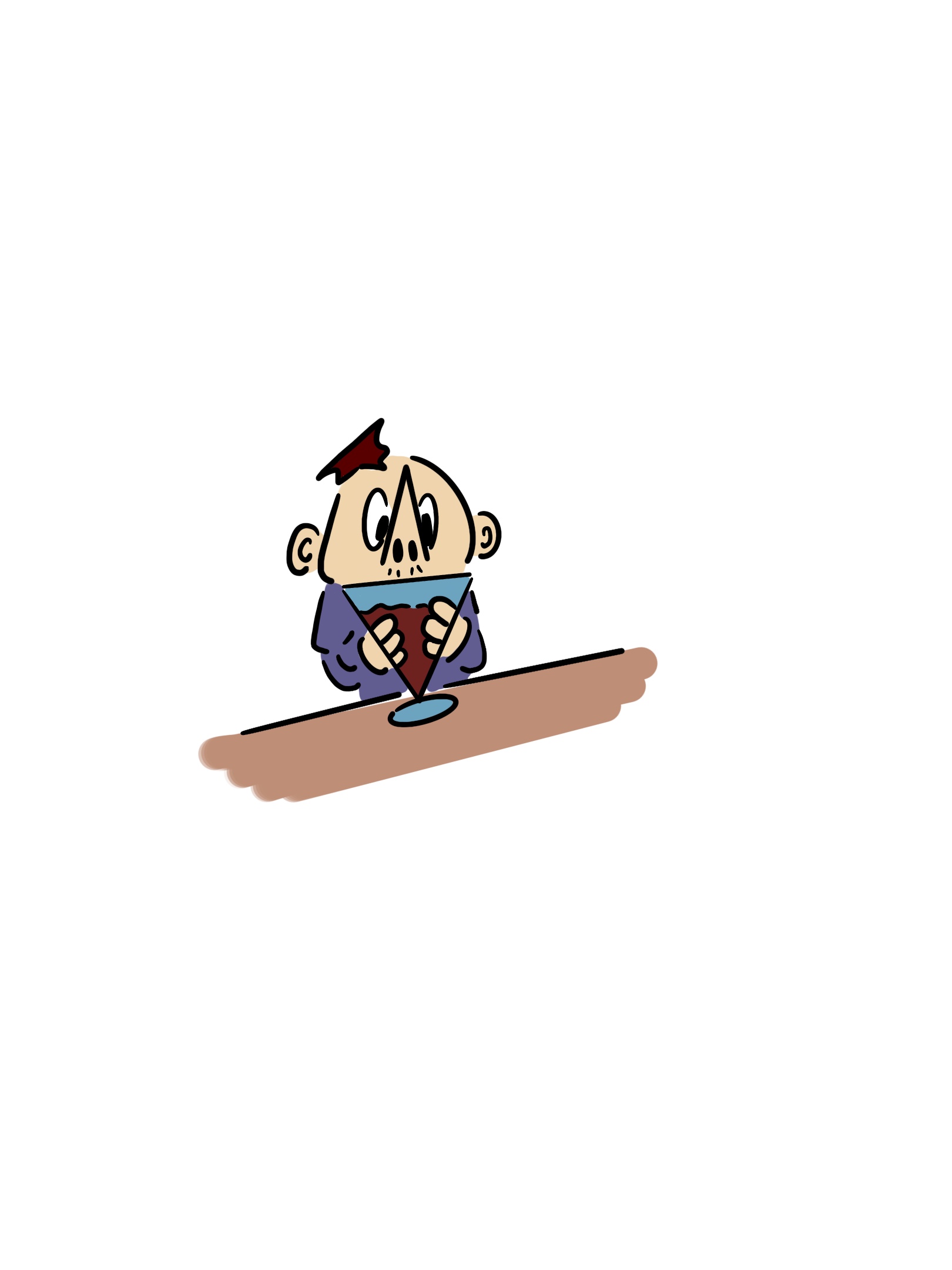How not to be an asshole
You don’t have to overcomplicate your wine drinking experience.
We all know an asshole.
They jam their nose into their wine glass, make a sound like they’re gargling on their mucus, and then interrupt an otherwise pleasant conversation to describe how the wine’s velvety tannins and subtle notes of snobbery compliment the terroir beautifully.
Sensing an apathetic response to their obnoxious declaration, they continue, undeterred, as if social redemption demands they identify every undertone and nuance that graces their palette. They hold their wine glass at a 45-degree angle, gaze perversely into nine ounces of cabernet sauvignon, and then they declare, without prompting (obviously), that the wine’s bouquet is redolent with notes of black currant and leather.
Okay, maybe you don’t know that asshole—but believe me, they’re out there and they’re ruining everyone’s time. So, what do you say to an asshole when they’re being, well, an asshole? In my professional and unfortunate experience, you have two options. The first is to chastise them with silence and ignore their pretentious remarks, but chances are, if they use the word “redolent,” they probably lack the awareness to be discouraged by subtle social cues. So, that leaves us with option two.
This one is slightly more complicated, but significantly more fun: try to out-asshole the asshole. Declare with feigned sincerity your own pleonastic descriptions. Describe how the vintage wine tantalizes your palate with notes of dark chocolate and forest floor; or how the terroir boasts a refined complexity that delivers a symphony of flavors, which harmonize perfectly with the undertones of vanilla and cedar.
Hopefully your uncultivated opinions will provoke and irritate the asshole into an argument, at which point you can simply propose that you both agree to disagree. Ideally, your willingness to concede to disagreement will be so infuriating that the asshole will forget all about the wine’s opulent flavours and instead direct their passionate capacity for poetics towards your flaws as an individual—which, in my opinion, is preferable.
But perhaps the more important question is to ask how you avoid sounding like an asshole. If you enjoy wine, you probably talk about it on occasion. Maybe you took a trip to Italy over spring break and appointed yourself a master sommelier (“wine waiter”). Maybe you’re skeptical that wine has any value beyond intoxication, but you want to prepare for the day you have to impress your in-laws.
Whatever the case, there is some small yet significant value in having a basic understanding of wine. That doesn’t mean you need to familiarize yourself with the subtle differences between wine grown in limestone-rich soils and clay-rich soils, but it would be an asset to society if you understood how to talk about wine without sounding like an asshole.
The first rule for talking about wine in a way that doesn’t provoke someone to cut your tongue out with garden shears is to never challenge a person’s enjoyment. Just don’t. Seriously, I mean it. Yes, even if that happens—or that. Just don’t do it. If you’ve ever had someone criticize you for holding a glass of white wine with your palm, you know how nauseating these corrective observations can be. Let people enjoy themselves, even if they’re doing it wrong. If they want to buy a C$200 bottle of pinot noir to make sangria, that’s okay. If they want to dilute a glass of cabernet sauvignon with grape juice, that’s fine. It’s not your problem and you shouldn’t try to make it.
Do not confuse dislike with discernment, as Kat Kinsman, the executive features editor for Food & Wine, advises.
Sometimes, believe it or not, you can use the word “good.” It might not be the most eloquent, pervasive word in the dictionary but I’d rather someone tell me that I smell good than declare, with Shakespearean emphasis, that I smell like a nectareous bouquet of intoxicating aromas. To be honest, if someone described anything about me as a nectareous bouquet, I’d probably send out an amber alert. When you talk about wine you don’t have to overcomplicate the experience. You can enjoy something simply because it tastes good. Your enjoyment shouldn’t depend on your ability to decipher its particularities. This isn’t to say that it can’t be a more complicated experience, just that it doesn’t need to be.
This leads me into my next rule, which is more of an exception than a restriction: if simplicity is torturous, and your existence (or career) depends on your ability to thoughtfully articulate the mouthfeel of fermented grapes, don’t worry, there’s a place for you. The majority of what constitutes an asshole depends on the audience. In other words, if for some strange and rhetorical reason, the entire brotherhood of Pi Kappa Alpha are joining you for dinner at your country house, describing your pinot noir as a triumph of subtlety and grace will probably result in some soft cyberbullying and a collection of rumors regarding your sexual orientation. However, if your guest list includes the most prestigious members of the Paris opera, noting how the delicately balanced flavors interweave in a harmonious ballet will probably garner you some complimentary affirmations and a formidable reputation.
Each of these rules can be diluted into one guiding principle: worry more about the enjoyment of others and less about your ability to impress them. Before you inject your elevated beliefs into a conversation about how the Smurfs might be white supremacists, ask yourself whether deviating a conversation of deep cultural consequence to express your opinion on a C$13 bottle of wine has any value beyond self-promotion. Consider, with all the uncertainty you can dredge up from the depths of your insecurities, whether the words “redolent” or “bouquet” have any reason to come out of your mouth. You already know what you think. The only reason to say it out loud is if it will benefit those around you, and spoiler alert: describing a chardonnay’s regal demeanor as beguiling benefits no one—least of all you.
Copy Editor (Volume 49) | aidan@themedium.ca —Aidan is completing a major in Professional Writing and Communications at the University of Toronto Mississauga. He previously worked as the Associate Editor for the Arts and Entertainment section of The Medium, and currently works as the Copy Editor for The Medium. When he’s not catching up on course work or thumbing through style guides, Aidan spends his free time exercising (begrudgingly), singing (unmelodically), and trying (helplessly) to read David Foster Wallace’s Infinite Jest. The latter of which has taken 3 years to reach the 16th page. You can connect with Aidan at aidan@themedium.ca.



LOL well said.